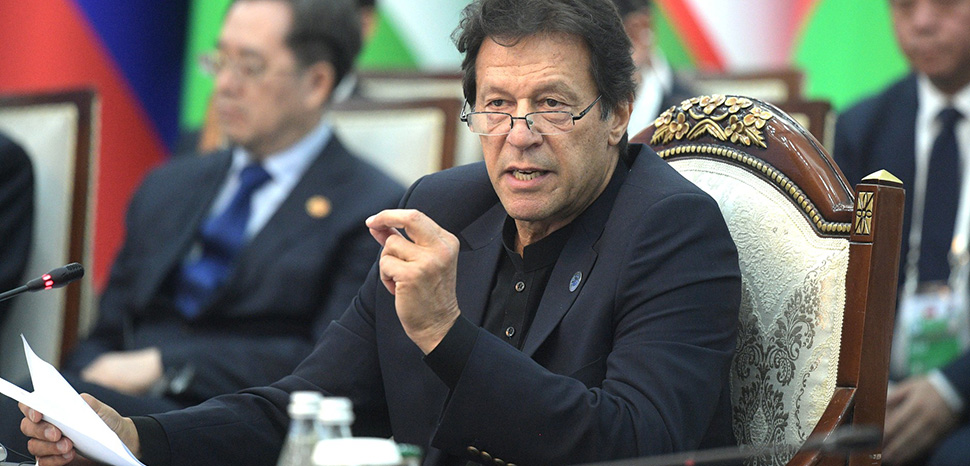Osama Qayyum

Since the ousting of Imran Khan’s government in an April 2022 vote of no confidence, stability has been the mantra echoing through every corridor of the state’s polity. Questions have been asked regarding the government’s legitimacy and its economic woes, casting a shadow of uncertainty over Pakistan’s future. Yet, the elections held on February 8 have only deepened these concerns, particularly regarding the transparency of the nation’s electoral process – an issue that has long plagued Pakistan’s democracy. Now, these apprehensions have been echoed by international bodies, including the United Nations and the European Union. The elections have merely exposed a systemic failure of state institutions.
To the dismay of the establishment, and indeed many within the Pakistan Tehreek-e-Insaf (PTI) itself, independent candidates backed by the PTI emerged victorious despite facing a barrage of obstacles aimed at limiting their success. PTI supporters turned out in resounding numbers, creating a precarious scenario where PTI-backed independents now constitute the largest group within the national assembly.
On technical grounds, albeit hotly disputed by various factions, the Pakistan Muslim League, led by former Prime Minister Nawaz Sharif, stands as the largest single political party in Pakistan. However, forming a government would require extending an olive branch to other political entities, notably the Pakistan People’s Party headed by Bilawal Bhutto Zardari, and forging alliances with smaller parties and independent candidates. Negotiations are ongoing, with Bilawal Bhutto’s camp fully aware of their pivotal role in any prospective government formation. Bilawal has expressed reluctance to hold any representation within the federal setup, yet he eagerly seeks to confer the ceremonial presidency upon his father, former President Asif Ali Zardari. Understanding the importance of avoiding close alignment with the PMLN and resisting being a mere pawn in their pursuit of power, Bilawal is keen to forge his own political path. He aims to avoid the perception of being closely associated with or influenced by the PMLN. Nevertheless, Bilawal has openly lent his support to a PMLN-led government, resembling the Pakistan Democratic Movement (PDM) that previously held power, a coalition comprising most major parties except the PTI. Shehbaz Sharif, the former prime minister, has once again been nominated for the premiership.
The PTI’s electoral dominance in this election has been nothing short of astonishing. The narrative seemed predestined for Nawaz Sharif’s graceful return to Pakistan, poised to steer the nation toward stability and prosperity while permanently sidelining Imran Khan. The elections were anticipated to merely formalize this transition of power. However, the groundswell of support for PTI, particularly evident on social media, caught the establishment off guard, translating into tangible grassroots momentum. Despite harsh crackdowns following Imran Khan’s vote of no confidence in 2022, with PTI leaders enduring imprisonment, torture, and intimidation, the PTI-backed candidates not only emerged victorious but did so convincingly, de-seating prominent figures from the Pakistan Muslim League-Nawaz (PMLN).
Yet, this victory seems to have been unfairly contained by the Election Commission of Pakistan (ECP), whose questionable judgments awarded seats to candidates who, by all accounts, fell short of victory by a considerable margin. Such irregularities led even declared winning candidates like Hafiz Naeem ur Rehman from the Jamaat-i-Islami Party to relinquish his seat in Sindh, acknowledging he didn’t truly win.
The PTI’s success has been attributed to the surprising voter turnout from across the country, including provinces which hadn’t previously been a stronghold. This unprecedented mobilization of voters signifies a resounding victory not just for PTI, but for the entire political landscape—a landscape that, for so long, had been marred by disillusionment and a pervasive belief that change was beyond reach. However, with questions surrounding the immediate aftermath of the election, including significant delays in announcing results and discrepancies between reports from local polling agents and official notifications, doubts will arise about the legitimacy of the newly formed government.
Pakistan now stands at a critical juncture. Democratic forces must unite to chart a path forward, as reliance solely on the establishment risks reinforcing its dominance, a role that has been vehemently contested by all segments of the political spectrum. The will of the people must prevail if the nation aspires to a trajectory of prosperity and stability. The roles of the Election Commission and the Supreme Court will be pivotal in the days and weeks to come.
No comments:
Post a Comment